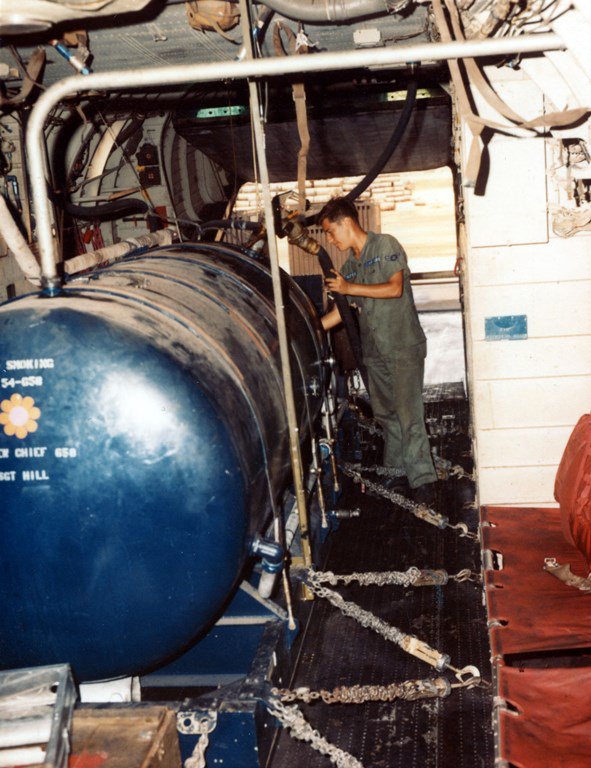Department of Defense Greatly Restricts Defoliation Operations
April 15, 1970

The Department of Defense bans the use of Agent Orange amid ongoing controversy over the use of defoliants in Vietnam and greatly curtails defoliation operations in general. The elements executing Operation RANCH HAND have been reduced to a single unit of eight aircraft. The final defoliation mission of the war occurs on May 9 using Agent White. Limited crop destruction missions continue until January 1971.1
What historians say:
Inspired by British use of chemical defoliants during the Malayan insurgency in the late 1940s, United States aircraft spread chemical agents on Viet Cong-controlled areas in South Vietnam from 1965 to 1970 to deny the enemy cover and food. Initial reports claimed that defoliation improved aerial observation and inhibited enemy movements during the daytime, and commanders on the ground called for more flights. Crop destruction programs proved more controversial, since they disrupted the rural economy. Historians now largely agree that the widespread application of chemical defoliants was a strategic mistake in the Vietnam War because these weapons drove many South Vietnamese peasants to embrace the Communists. The decision to discontinue the use of Agent Orange as a chemical defoliant came after the Food and Drug Administration concluded that dioxin, a component of this compound, produced birth defects in test animals.
Historians debate whether the use of Agent Orange in the Vietnam War constituted a war crime. Some scholars insist that the United States’ use of defoliants in Vietnam did not constitute a war crime under existing international law because military planners ceased to employ these chemicals as soon as they discovered that the substances produced adverse effects on human health. Other scholars assert that the United States knew of the devastating health effects these agents produced on the Vietnamese and on American servicepeople, and they allege that some officials in the government conspired to hide this scandal from the public. North Vietnamese authors always have maintained that the application of chemical defoliants constituted a war crime, and postwar Vietnamese studies claim large numbers of civilians have suffered health problems from exposure to these chemicals. The adverse side effects of chemical defoliants led President Gerald Ford to forbid the United States’ further use of these types of weapons in war. Many Vietnam veterans still suffer health problems from exposure to these toxic chemicals, one of the longest lasting and most controversial legacies of the war.
Lewy, Guenter. America in Vietnam. New York: Oxford University Press, 1978.
Buckingham, William A. Operation Ranch Hand: The Air Force and Herbicides in Southeast Asia, 1961-1971. Washington, DC: Office of Air Force History, 1982
Sills, Peter. Toxic War: The Story of Agent Orange. Nashville: Vanderbilt University Press, 2014.